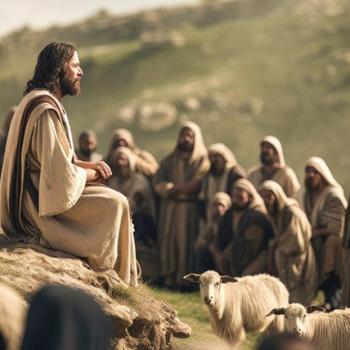 I wanted to write this chapter for a long time. Finally, I got my chance.
I wanted to write this chapter for a long time. Finally, I got my chance.
For a few years, I’ve written about ways the Bible should influence how we tell the biblical Story among oral peoples. For example, see here and here.
In a recently published book, World Mission: Theology, Strategy, and Current Issues, I wrote a chapter called “Biblical Theology for Oral Cultures in World Mission.”
Relating Biblical Theology & Oral Peoples
What difference does biblical theology make among oral peoples?
Let’s first define our terms. By “oral peoples,” I refer to those for whom orality is their only or preferred means of communication. Therefore, this question not only concerns nonliterate tribes but also countless educated Westerners who hardly read except by necessity. The latter prioritizes movies, television, music, and social media over books and newspapers.
It is my conviction that the Bible should not only inform our message but also shape our methods. There are a few reasons to think we can gain practical insight by studying biblical theology.
- Story
Oral peoples are storytellers who organize and share information primary in narrative, not expanded exposition. Fittingly, the Bible not only consists primarily of stories, they together even form an overarching Story about God’s plan and work in the world.
- Oral Background
Many scholars highlight the point that much of Scripture shows evidence of an oral background.[1] That is, the Bible emerged from ancient oral cultures. Many accounts in the Bible likely were passed along orally first before being written down. Accordingly, we might be able to gain insight for contemporary practice by considering the way in which orality influenced the formation of biblical narratives.
Does the Bible Have a Grand Narrative?
The chapter explores two primary issues. First, to what degree does the Bible itself possess a grand narrative? While many evangelical readers take this for granted, not everyone does.
What’s more, even when people agree on the existence of a grand narrative, people do not always agree on what that Story is. In other words, much of what people describe as the biblical grand narrative does not reflect what we find in the Bible.
Instead, Christians routinely summarize select ideas found within Scripture (most of which reflect core doctrines); they then suppose that 3-4 sufficiently captures the Bible’s inherent plot structure as told by the ancient authors themselves. I’ve raised this concern when critiquing other tools like C2C.
So, how do we sort out the question? In the chapter, I used a method of narrative analysis suggested by several biblical and literary scholars. What is needed now is a compilation of ancient texts that summarize the biblical grand narrative. Many scholars have suggested passages that seem to serve as summaries within the Bible itself.
Building on these observations, I drew from numerous ancient summaries of the Bible to identify a broad but distinct narrative that improves on popular notions about the Bible’s grand story. The chapter confirms that we rightly identify the basic story structure by pointing to clues (e.g., intertextuality and theological themes) that act as corroborating evidence.
A Few Implications & Applications
This leads to a second question: What implications and applications follow from knowing the overarching story of Scripture?
Although the biblical metanarrative should influence many areas of ministry, it carries special significance in oral contexts in which story plays an indispensable role. Discerning the Bible’s inherent plot line will affect evangelistic strategies and training methods. It could even refocus our attention to other priorities that have been overlooked or minimized.
If you take a look, let me know what you think. From your perspective, how might the narrative framework of the Bible influence mission practice?
[1] Here is a random sample of works: Burton Keith Brewer, “Models for Oral Transmission of the Gospel,” Ph.D. Dissertation, Drew University, 2005; Kevin Iverson, “Orality and the Gospels: A Survey of Recent Research.” CBR 8 (2009): 71–106; James B. Slack, “Oral Memory and Its Implications Concerning Chronological Bible Storying,” September 2004.












